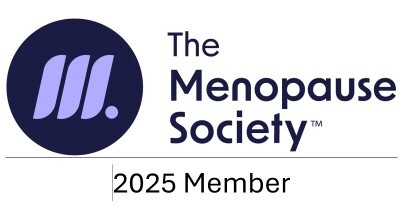Why Menopause Makes You Hungry
You haven’t changed much about your eating—same breakfast, same lunch, same general idea for dinner. But suddenly, your hunger feels dialed up to 11. And it’s not for salad. It’s for bread, pasta, chips, and maybe a little (or a lot of) chocolate. To make things worse, those snacks that you used to burn off easily? They’re starting to stick around. Your waistline feels different, even though your habits haven’t really changed.
This is a surprisingly common—and frustrating—part of perimenopause and menopause.
Hormones Rule Appetite—and Menopause Changes the Rules
In your reproductive years, estrogen and progesterone don’t just regulate your cycle. They also help steady metabolism, appetite, and blood sugar. When those hormones start to fluctuate and eventually decline, your body shifts gears.
Here’s what happens:
-
Estrogen drops → ghrelin (“I’m hungry”) rises
-
Leptin (“I’m full”) becomes less effective
-
Insulin resistance gets worse → blood sugar spikes and carb cravings
-
Muscle mass naturally declines → slower metabolism, bigger appetite
So yes—your hunger feels stronger, and no, it’s not because you’re doing something wrong. Your internal appetite signals are simply scrambled.
Sleep and Stress Make It Worse
Many women in midlife also notice that sleep is harder to come by. Hot flashes, night sweats, or simply lighter sleep patterns are common as hormones shift. The problem? Poor sleep raises cortisol, your main stress hormone. And high cortisol ramps up hunger—especially for starchy, high-fat comfort foods. Pair that with hormone-fueled irritability, and those late-night snacks aren’t just emotional—they’re physiological.
The GLP-1 Connection: When Fullness Signals Fade
GLP-1 (glucagon-like peptide-1) is a hormone made in your gut that helps regulate appetite, blood sugar, and satiety. Some studies suggest estrogen helps stimulate natural GLP-1 production. Which means when estrogen declines, your satiety signal may weaken too.
That’s part of why GLP-1 medications have become so popular. They essentially restore that “I’m full now” message, while also reducing cravings and stabilizing blood sugar. For many women, this can be a game changer. You no longer have to be super overweight to qualify for GLP-1 medication. Flow Wellness utilizes microdosing to help with the 5-10 pounds and increased appetite that happens around perimenopause. Get started now.
What You Can Do About It
This isn’t about stricter diets or more willpower. It’s about working with your body’s new operating system.
Balance Your Hormones
Even if you’re not in full menopause yet, shifts in estrogen, progesterone, and testosterone can throw hunger, mood, and sleep off course even 10 years before or after true “menopause.” For many women, bioidentical hormone replacement therapy (BHRT) can help restore balance. The key is finding a provider who looks beyond “normal” ranges and personalizes care to your physiology. Enter: Flow Wellness BHRT.
Reset Appetite Signals
GLP-1 medications help restore your body’s natural “I’m full” signal. They quiet the constant food chatter, curb cravings, and keep blood sugar on a steadier track. For many women, this means finally feeling back in control around food—without relying on sheer willpower. Curious if it’s right for you? Explore more here: The Many Benefits of GLP-1 Therapy
Protect Your Sleep
Better sleep means better appetite regulation. Prioritize consistency—limit screens at night, cut caffeine earlier, and keep a steady bedtime. Low-dose melatonin or other supports may help, but often the best fix is addressing the root cause: hormone shifts and stress.
It’s Not Just You
If you’re hungrier in midlife and frustrated by weight changes, it’s not about discipline—it’s about chemistry. Menopause rewires hunger, disrupts sleep, and confuses metabolism. The good news? Once you understand what’s happening, you can work with your body instead of against it—and finally start feeling more like yourself again!




